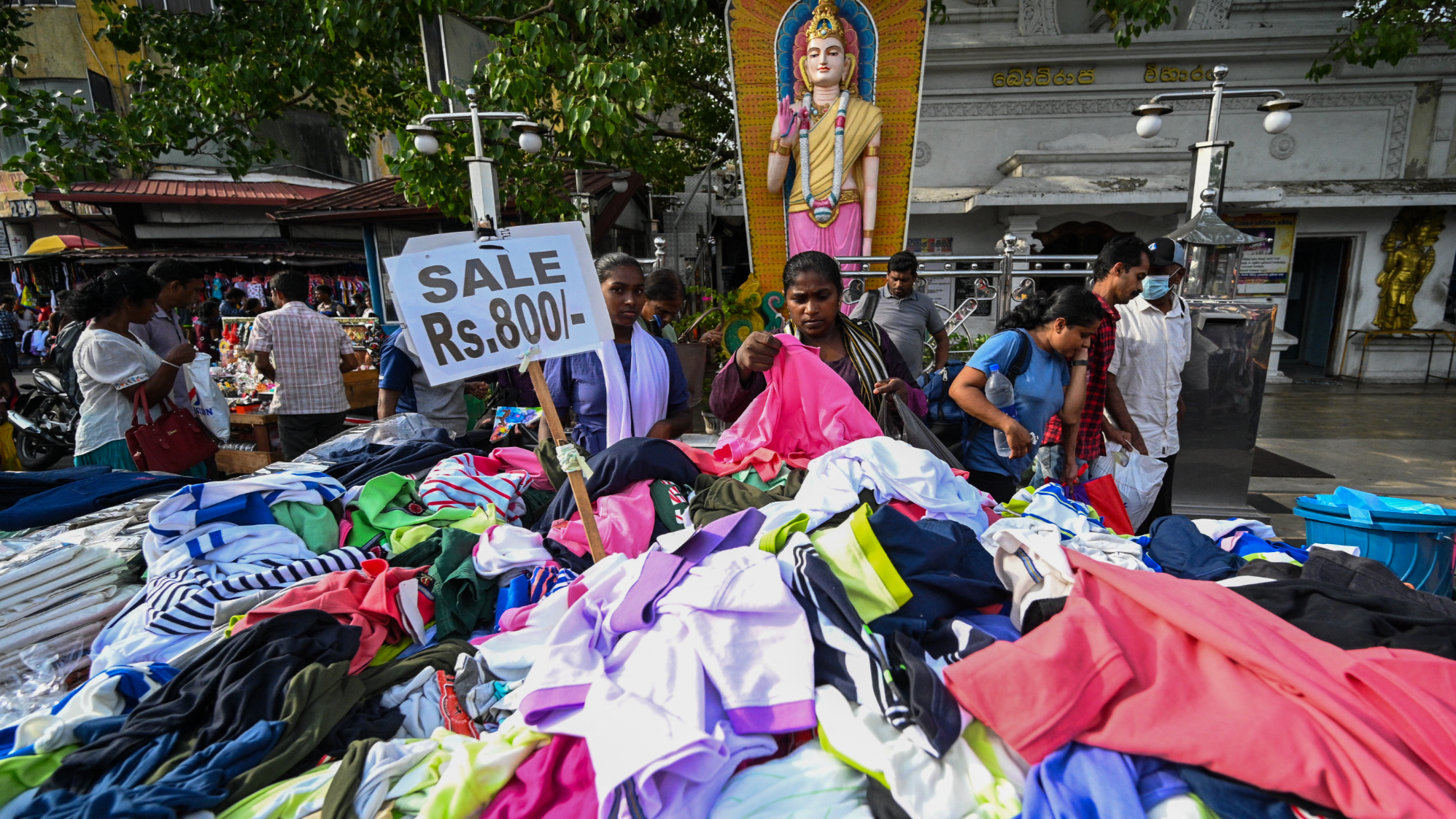
Sri Lanka has shown signs of economic recovery and is expected to record a positive turnaround in growth from this year onward, experts say.
However, they say there is still uncertainty on the economic front and, thus, an increase in exports, public spending or financial reforms could eventually enable Sri Lanka to overcome the economic crisis.
The Asian Development Bank (ADB), in its latest report, projected that Sri Lanka's economy will grow by 1.9 percent in 2024 and 2.5 percent in 2025 following two consecutive years of contractions.
It said the South Asia nation’s economy contracted in the first half of last year but recorded 3 percent growth in the second half of the year.
The forecasts for economic growth can be considered realistic given the recent economic performance of the Sri Lankan economy, noted Bernard Goonetilleke, chairman of Sri Lanka’s think tank Pathfinder Foundation.
Relevant figures demonstrate the improving economic conditions, according to him. For instance, Sri Lankan economy recorded 4.5 percent of year-on-year growth in the fourth quarter of 2023.
Goonetilleke noted, “however, the country must further increase its exports to return to economic stability and be able to service its foreign debts, following the restructuring discussions are brought to a conclusion.”
In its annual flagship publication, the Asian Development Outlook April 2024, the ADB said inflation in Sri Lanka will remain below 10 percent both this year and next year. Inflation is expected to average 7.5 percent this year and fall within the central bank's target range of 4 to 6 percent next year.
The inflation rate decelerated to single digits in 2023, following a peak in 2022. The report added that after depreciating sharply in 2022, the Sri Lankan rupee appreciated by 12.1 percent against the dollar in 2023 as the country moved to a flexible exchange rate.
The Sri Lankan government expects to attract $4 billion to $4.5 billion in foreign investments this year, the country’s Minister of Investment Promotion Dilum Amunugama said this week. Last year, Sri Lanka attracted $1.8 billion worth of foreign investments, although the target was only $1.5 billion dollars, he noted.
Amunugama said foreign investments have increased significantly after the country entered into an agreement with the International Monetary Fund. Due to the political and economic instability in Sri Lanka, foreign investment declined in 2022 and the first half of last year.
However, the ADB noted the weak domestic demand dragged down economic performance, and overall consumption fell 2.2 percent last year with private consumption declining by 1.6 percent while government consumption fell by 5.4 percent.
Ahilan Kadirgamar, a political economist and senior lecturer at the University of Jaffna in Sri Lanka, said these targets and investments have had a limited impact on people’s lives so far “as they are not going to increase employment in a major way or create the stimulus needed”.
To boost the economy, he noted that it is more important to increase public spending by the government. “We need fiscal stimulus. Only if the government spends and restarts a lot of the local projects, (and) construction projects, will the private sector also be stimulated to produce more,” he said.
To alleviate the impact of the economic crisis, the government needs to provide more economic relief to the people, he said.
But due to “the austerity policies of the IMF, that is not happening,” Kadirgamar added.
Early this month, Rajith Keerthi Tennakoon, the director general of community affairs, said the government of Sri Lanka has settled more than $1.9 billion in foreign debt and interest payments between President Ranil Wickremesinghe's assumption of office and February this year.
In a statement issued then, Tennakoon said that in the same period the government has disbursed more than $1.3 billion in multilateral loans and interest payments, with no outstanding arrears in either loan installments or interest payments.
Payments totaling $760.1 million have been made to the ADB and $7 million to the Asian Infrastructure Investment Bank, according to Sri Lanka’s Department of External Resources.
Tennakoon said during this period $571 million worth of bilateral loans and interest have also been paid. The Sri Lankan government is also actively engaged in restructuring business loans and interest totaling more than $4.4 billion that was acquired at high interest rates.
Despite the positive figures, experts say that uncertainties still remain. “While the issues pertaining to debt management are being resolved, the critical barometer for the future economic directions will rest on the outcome of the presidential election later in the year,” said Professor Lawrence Loh, director, Centre for Governance and Sustainability, NUS Business School, National University of Singapore.
He said that, in particular, any change in the country’s president following the election results would pose “key uncertainties” about the continuity of the reform programs initiated by the IMF. “The country may risk an economic insurrection if opposition parties undo the IMF-sponsored changes,” he added.
According to Loh, what Sri Lanka really needs are financial reforms that will be robust enough to withstand changes in the political leadership.
“Good national governance is necessary in the long term for the country not to be overly dependent on supranational financial support which usually comes with stringent conditions,” he said.
Xinhua contributed to the story.
Contact the writer at vivienxu@chinadailyapac.com


